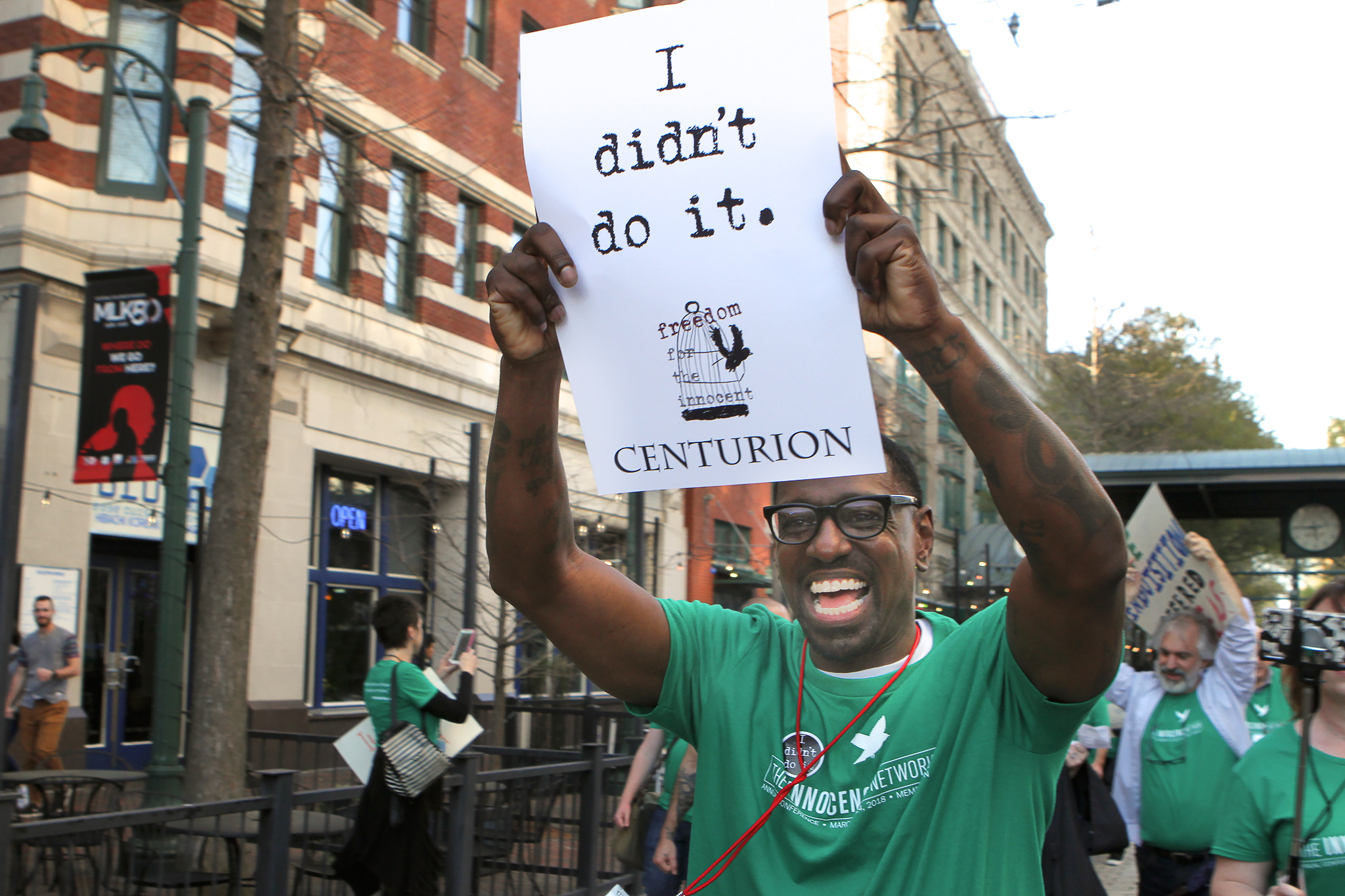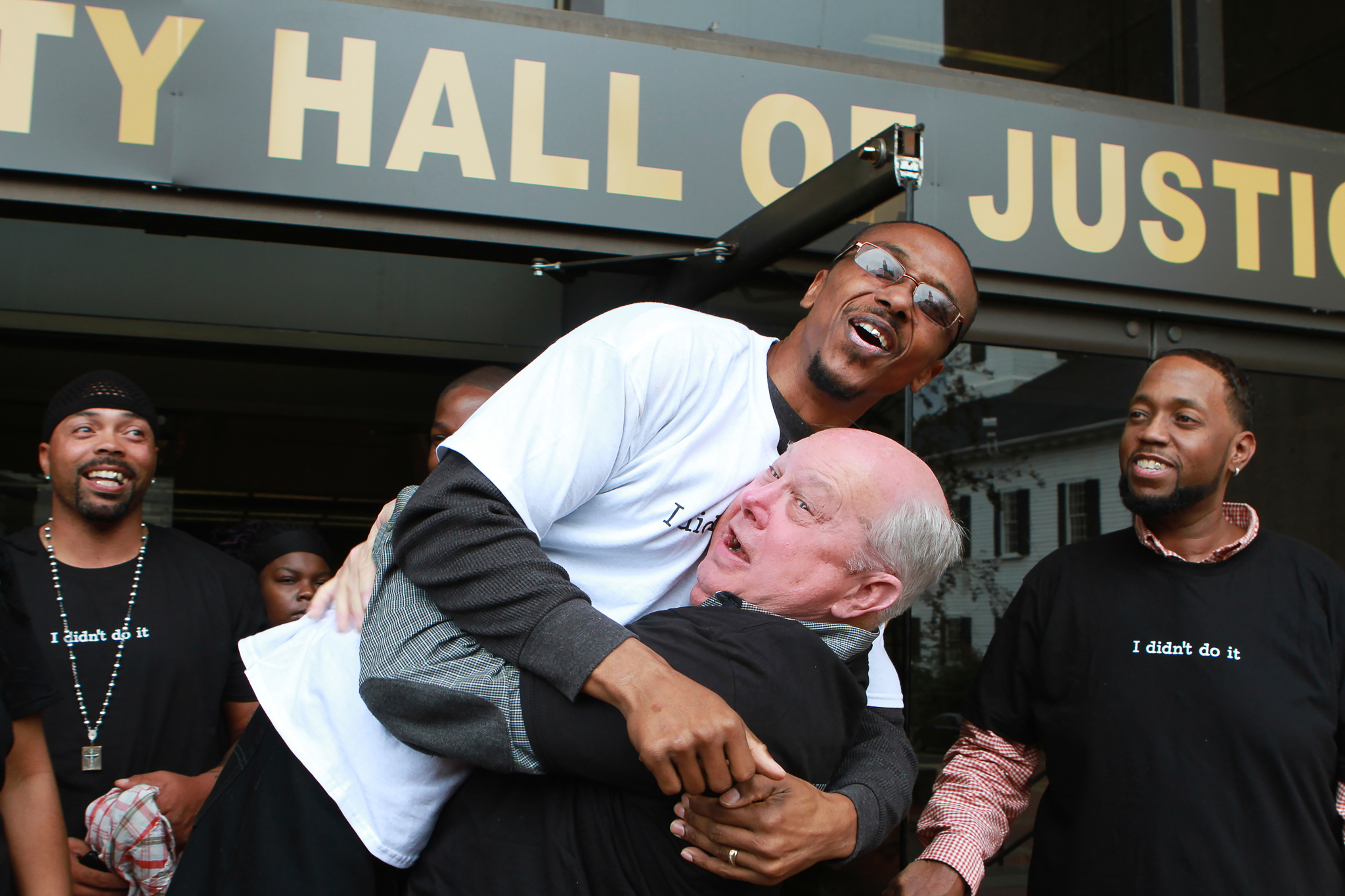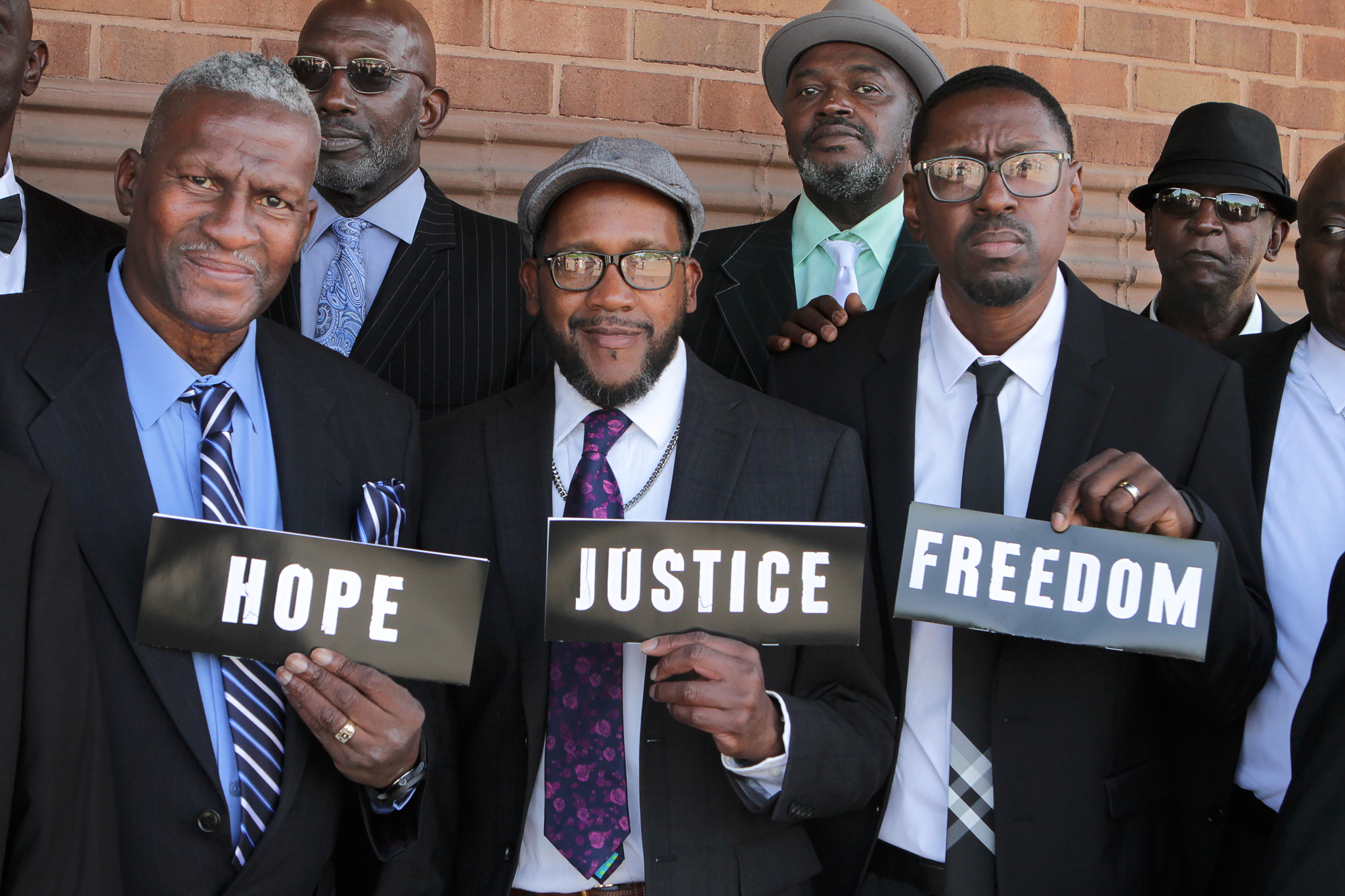Jim McCloskey and a handful of other advocates do the tough work of helping the wrongfully convicted.
-
September 2020
Volume65Issue5
Editor’s Note: Since writing his first novel, A Time to Kill, in 1989, John Grisham has become the best-known author of legal thrillers – his 44 books have sold over 300 million copies worldwide. Grisham supports the work of innocence projects that help individuals who claim they have been wrongfully convicted of serious crimes – sometimes, receiving the death penalty. Last month, Doubleday published When Truth Is All You Have by Jim McCloskey, “dean of the innocence advocates,” with moving stories of innocent prisoners sentenced to death or life in prison who were set free by Jim’s efforts. Portions of this essay by John Grisham appeared as the introduction to the book.
There are thousands of innocent people who have been convicted by our justice system and locked away in prison. Most Americans, or most white ones anyway, do not believe this. Those with darker skin know better because they have seen and lived this reality.
But since the vast majority of Americans will never be affected by wrongful convictions, they are not concerned with them. They see another sensational story of an exoneration and pause long enough to say, “What a shame.” Which is usually followed by: “But he was probably guilty of something or he wouldn’t have been convicted in the first place.”

Few people care enough about wrongful convictions to volunteer with an innocence organization. Few even know how their elected officials vote on innocence issues. Wrongful convictions are on no one’s list of our most important problems. Occasionally, when an exoneree retaliates with a big lawsuit and the taxpayers are forced to pay millions in damages, this gets attention and causes resentment but nothing changes.
We hear the common refrain that “the system is broken” but there is little effort to fix it. So wrongful convictions continue, and the few lucky inmates are exonerated years later, while the majority serve long sentences for crimes committed by someone else. Life goes on for the rest of us.
With so little concern for the problem, why, then, do a handful of people dedicate their lives to freeing the innocent? I know some of these heroes: Peter Neufeld and Barry Scheck, who founded the Innocence Project in 1992 and have guided it to 367 DNA exonerations; Rob Warden of the Center on Wrongful Convictions at Northwestern, a group of advocates responsible for 30 exonerations to date; Emily Maw and the Innocence Project New Orleans, now with 36 exonerations; Shawn Armbrust of the Mid-Atlantic Innocence Project, with 36 clients walked to freedom. I could go on, but at the risk of neglecting someone or some organization, I’ll stop.
At any given time in the United States, there are about fifty innocence organizations at work. Most are attached to law schools and use students in their clinics and workshops. A few are freestanding and rely upon the generosity of others. And this does not include the tens of thousands of hours of pro bono work by big law firms and their attorneys who are committed to equal justice.
Each year one or two innocence organizations will fold because of a lack of funding, while one or two new ones will raise some money and open for business. There is never a lack of clients and every innocence group is deluged with letters from prison. Almost all receive help from private lawyers willing to work pro bono because they believe in justice. What the innocence organizations do not get is public funding. Our flawed systems do not recognize the problem of wrongful convictions; thus, there are no public dollars to investigate bad convictions and litigate claims of relief. The funding is all private, from individuals and foundations, and this is unlikely to change.

Convicting an innocent person is relatively easy. Just put together a few of the usual causes –lying snitches, bogus forensic experts, cheating cops and prosecutors, a sleeping judge – and the jury can be convinced. On the other hand, exonerating that same defendant is virtually impossible. It takes years, some luck, and at least $200,000 squeezed from private donors.
And it also takes an advocate who is tireless, fearless, and dedicated to justice. A man like Jim McCloskey, the dean of all innocence advocates, “The Exonerator.”
I’d never heard of Jim and his Centurion Ministries until 2005. When I was in the law office of Martin Barrett in Norman, Oklahoma, his storage rooms were stacked with boxes and boxes of paperwork. And one of the boxes was marked Centurion Ministries. Being new to innocence work at the time, I didn’t know much about it. So I asked Mark, “What is Centurion Ministries?”, and he said, Let’s go to lunch and I’ll tell you all about it.
Forty years ago, when Jim McCloskey was a seminary student at Princeton, he founded Centurion Ministries, the first group in America devoted to overturning wrongful convictions.
He was neither a lawyer nor a reporter, but he was convinced that there were (and are) a lot of innocent people in prison. “I did field work at Trenton State Prison, assigned two cell blocks in the maximum security unit,” Jim recounts. “I had 40 men, and one of those men, only one, was proclaiming his innocence to me. The others were all telling me what they did do. So it’s a canard when people say, well everybody says they’re innocent in prison. In my experience, that’s not true.”
Jim gave up his plans to become a minister and instead dedicated his career to freeing the wrongfully convicted. He started with nothing – no experience with the criminal justice system, no legal training, certainly no money – and he built Centurion Ministries into one of the most successful and important innocence organizations in the country. As of today, sixty-three men and women are free because of his dogged efforts.
“There’s just no question of the racial injustice that sweeps through the criminal justice system in the U.S. and results in so many more people of color getting wrongly convicted for something they had nothing to do with,” says Jim. “It’s a sad statement to make, but it’s true.”
McCloskey’s candid and inspiring story, When Truth Is All You Have, chronicles his unique journey and introduces us to some of the inmates for whom he has fought. Readers meet the amazing people who, though innocent, somehow survived in prison, most of them for decades. There is the New Jersey inmate who convinced Jim he was innocent and whose exoneration led Jim to follow a calling to spend his career freeing the wrongfully convicted. And the Texas inmate who spent ten years on death row for someone else’s murder before Jim “walked him out.” And two of Jim’s clients, men whose executions he witnessed and only later came to question their innocence.
I’ve always wanted to write a book like Jim’s, of stories of the wrongfully convicted. I’ve written one work of nonfiction, The Innocent Man, about the case of Ron Williamson, a former minor league baseball player who was charged, tried and wrongly convicted in 1988 of the rape and murder of Debra Sue Carter, and sentenced to death. His alleged accomplice, Dennis Fritz, was given a life sentence. After serving 11 years on death row, Williamson was exonerated by DNA and released in 1999. But he suffered deep and irreversible psychological damage during his lengthy stay on death row – he had been only five days away from being executed in 1994 when his sentence was stayed by the court.

The research was brutal and the writing took forever, but the story was so compelling I didn’t want it to end. The same can be said for all the stories of wrongful convictions: They are so good because they are so tragic – because of the injustice, the suffering, the wasted time, the wasted people. And because for every wrongfully convicted person that got out of prison, somebody – the real culprit – didn’t go to prison.
Jim could write a fascinating book about each of his cases, all sixty-three of them now, and the pages would turn. However, limited by time and space he has chosen his best. When Truth Is All You Have left me wanting more of Jim’s “war stories.”
Several years ago, Jim invited me to Princeton for the annual Centurion Ministries gala and fundraiser. It was a wonderful evening of celebration and made me feel that somewhere in the depths of the quagmire of our legal and judicial systems there are small victories to cheer about. The actor Brian Dennehy, a friend of Jim’s, was there and served as the master of ceremonies.
The real stars that evening, though, were about two dozen exonerees, “his guys,” as Jim likes to call them. These were men and women who had been banished to prison for the crimes of others and forgotten about. Men and women with no advocate, no lawyer, no voice, no hope. Men and women who had almost given up but somehow clung to the idea that one more letter, one last Hail Mary, to Centurion Ministries might bring a miracle.
Men and women lucky enough to meet Jim McCloskey.

